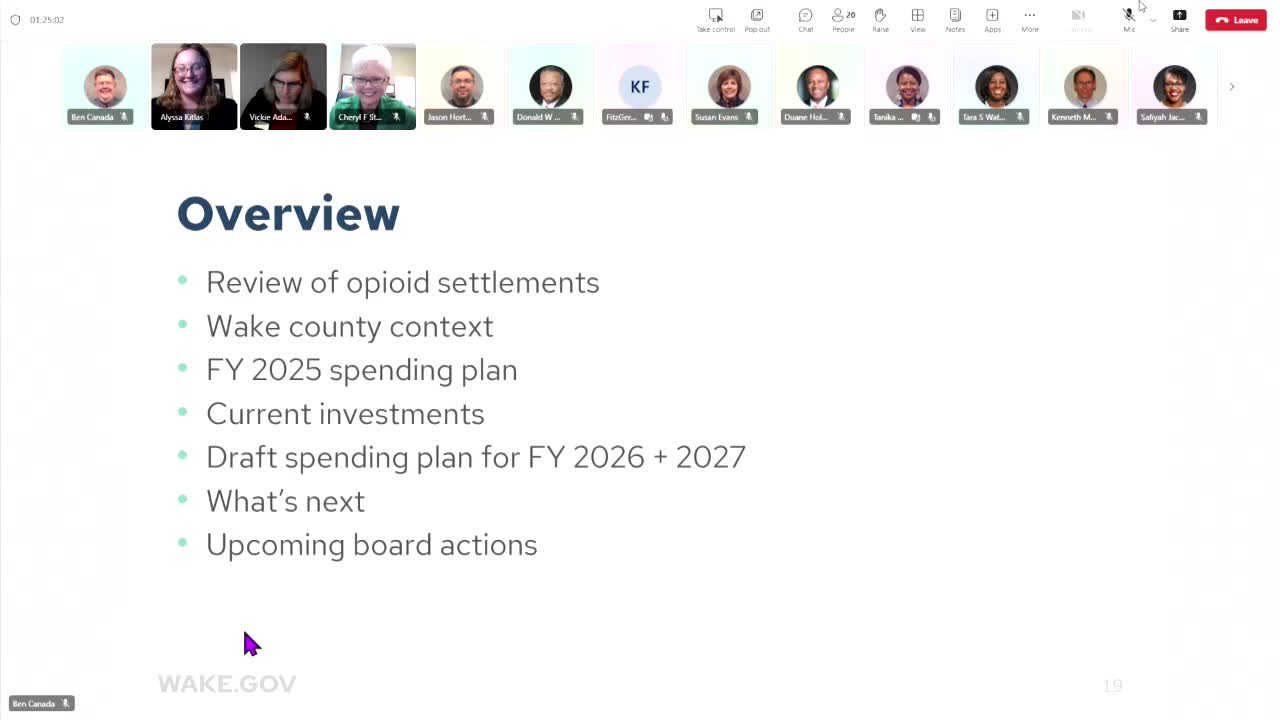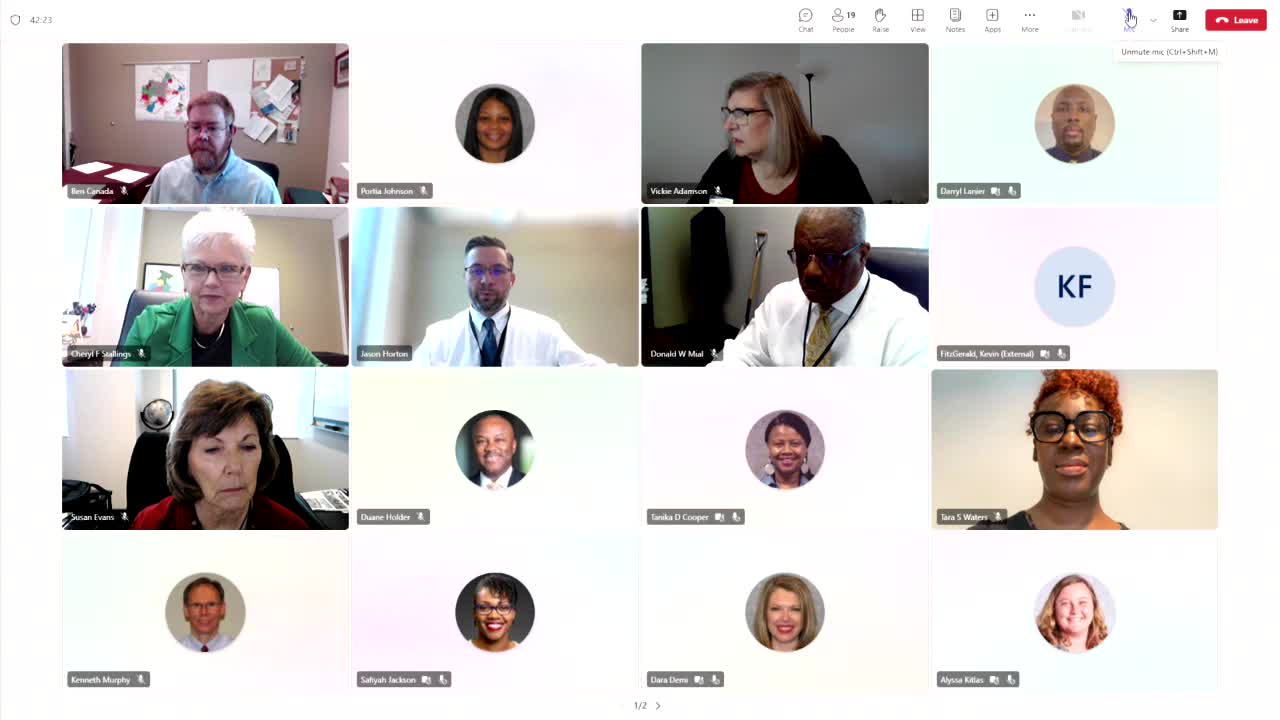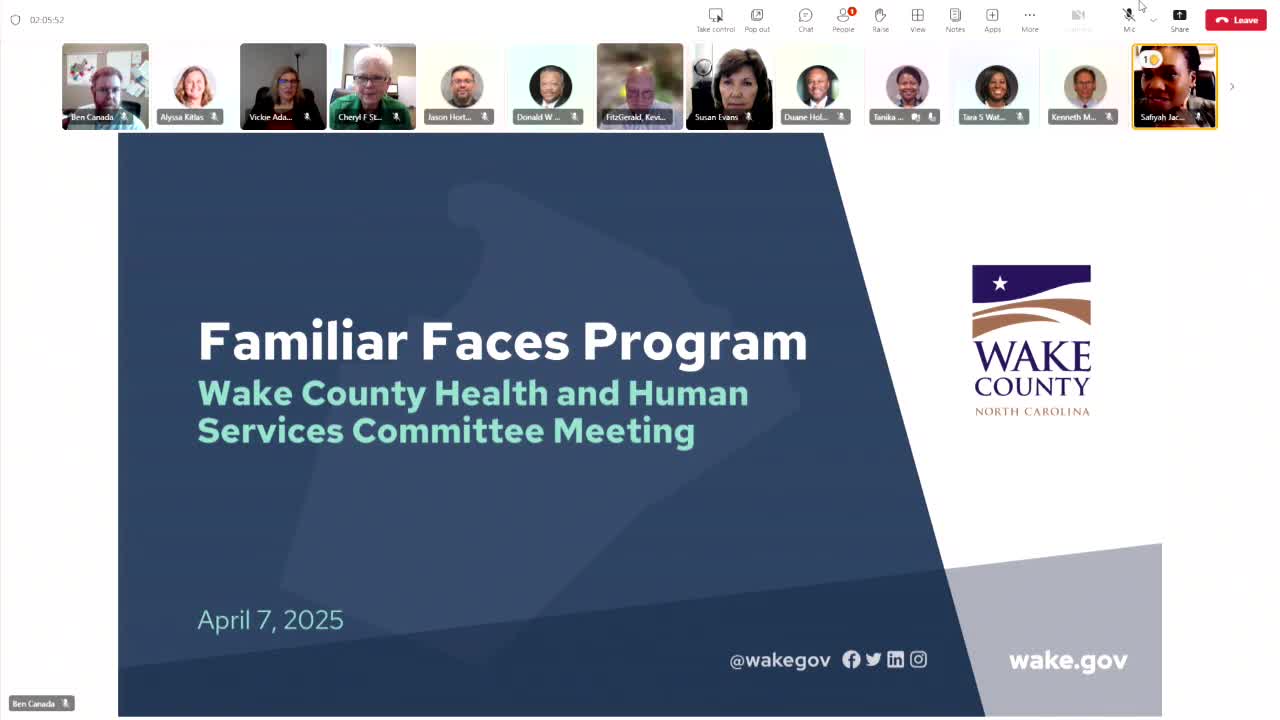Article not found
This article is no longer available. But don't worry—we've gathered other articles that discuss the same topic.

Wake County details opioid-settlement spending: $6.5 million planned this year for treatment, naloxone and recovery supports

Wake County HHS committee reviews strategic-plan initiatives to reduce barriers to care, streamline benefits and support veterans

